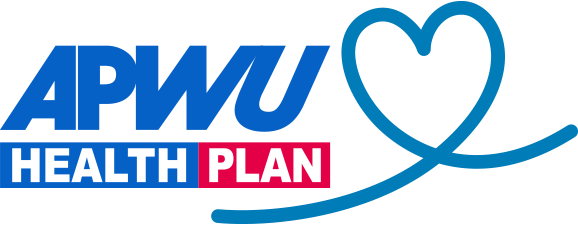Acupuncture is a form of medicine that originated in China and has been practiced for thousands of years. The procedure first came to the United States in the early 1970s, and its popularity has been growing ever since. Still, there are a lot of misconceptions about acupuncture, and many people in the West wonder if acupuncture is based in science or if it really works. Here are some answers to the most common questions about acupuncture.
What is acupuncture?
Acupuncture is a core component of traditional Chinese medicine that involves inserting very thin needles into the body at strategic points and various depths to treat a range of health issues.
According to traditional Chinese medicine, your natural energy or life force, known as chi or qi (pronounced “chee”), flows through pathways called meridians in your body. The free flow of chi throughout your body produces optimal health. Illness or disease may result when chi is blocked.
Acupuncture seeks to balance the flow of energy by placing needles into specific points along these meridians. Acupuncturists access chi through 361 acupuncture points in the body, along 14 major meridians. Placing needles into these points can bring the energy flow back into balance.
Many Western practitioners believe that acupuncture stimulates nerves, muscles, and connective tissues in a way that boosts your body’s natural painkillers.
What conditions can acupuncture treat?
Used alone or in combination with other complementary or conventional medical therapies, acupuncture is most commonly used to treat pain, manage stress, and relieve discomfort. Conditions that may benefit from acupuncture include:
- Headaches and migraines
- Chronic neck and back pain
- Asthma
- Depression
- Anxiety
- Carpal tunnel syndrome
- Premenstrual syndrome (PMS)
- Arthritis
- Respiratory disorders
- Insomnia
- Dental pain
- Fibromyalgia
- Irritable bowel syndrome (IBS)
- Sports and repetitive stress injuries
- Menopause
In some cases, acupuncture is used during stroke rehabilitation, and acupuncturists can treat nausea and vomiting that results from chemotherapy or surgery.
Is acupuncture safe?
The Food and Drug Administration (FDA) regulates acupuncture needles as medical devices. The needles must be sterile, nontoxic, and labeled “for one use only” by a licensed practitioner.
However, acupuncture isn’t for everyone. Before having treatment, talk to your doctor or practitioner if you:
- Have a bleeding disorder or take blood thinners. This may increase your chances of bleeding or bruising from the needles.
- Have a pacemaker. In some cases, practitioners apply mild electrical pulses to the needles. These pulses could interfere with a pacemaker’s operation.
- Are pregnant. Some acupuncture points may stimulate labor, which could result in a premature delivery.
Does acupuncture hurt?
The stainless steel needles acupuncturists use are nothing like those used to give injections or draw blood. They are surprisingly thin and come in different lengths and gauges. Many people don’t feel the needles at all. In some instances, you may feel a mild sensation as each needle is placed and reaches the correct depth.
Common side effects of acupuncture include soreness, bruising, or minor bleeding where the needles were inserted.
What happens during an acupuncture session?
Each practitioner of acupuncture has a unique style and may blend aspects of Chinese and Western approaches to medicine. To determine the type of treatment that is right for you, your practitioner will ask about your symptoms and lifestyle. The number of treatments you may need will depend on the condition being treated and its severity.
Some acupuncture sessions are short while others may last up to 60 minutes. The acupuncturist starts by inserting needles at strategic points on your body at various depths, from a fraction of an inch to a couple of inches. A typical treatment may involve the use of five to 20 needles. In some cases, an acupuncturist may place needles at points far away from the area being treated.
After the needles are inserted, the practitioner may gently move the needles, apply heat, or apply mild electrical pulses to the needles. Most patients find the treatment relaxing and experience a feeling of well-being.
Depending on the condition being treated, the needles will stay in place for 10 to 60 minutes, and there is usually no discomfort when the practitioner removes the needles. Your acupuncturist will end the session by gently cleaning the insertion points with cotton dipped in alcohol.
Does acupuncture work?
Many people find that acupuncture is an effective way to relieve pain, manage stress, and relieve discomfort associated with a number of health issues. Researchers are continuing to study how acupuncture relieves pain and stimulates the body’s natural healing abilities. Neurochemicals in the brain may play a role.
Acupuncture stimulates nerves in the body that send signals to the brain to release hormones that relieve pain and increase your overall mood. In most cases, people use acupuncture along with other treatments. You should continue taking your prescribed medications, even if acupuncture relieves your symptoms.
How are acupuncturists trained?
Becoming a licensed acupuncturist in the United States requires completion of a graduate degree, hands-on clinical experience, and certification. In order to maintain a license, acupuncturists attend continuing education classes.
Does health insurance cover acupuncture treatment?
While APWU Health Plan covers acupuncture with a copay or coinsurance when you see an in-network practitioner, other health insurance plans may not offer coverage. Before seeking acupuncture care, contact your health plan or check your plan documents to find answers to questions, including:
- Is there a limit on the number of treatments your plan covers?
- Is the acupuncturist you want to see in your health plan’s network?
- Do you need a referral from a doctor or other healthcare provider?
Additional sources
Mayo Clinic, Acupuncture
Cleveland Clinic, Acupuncture: What is it, how it works, treatments







